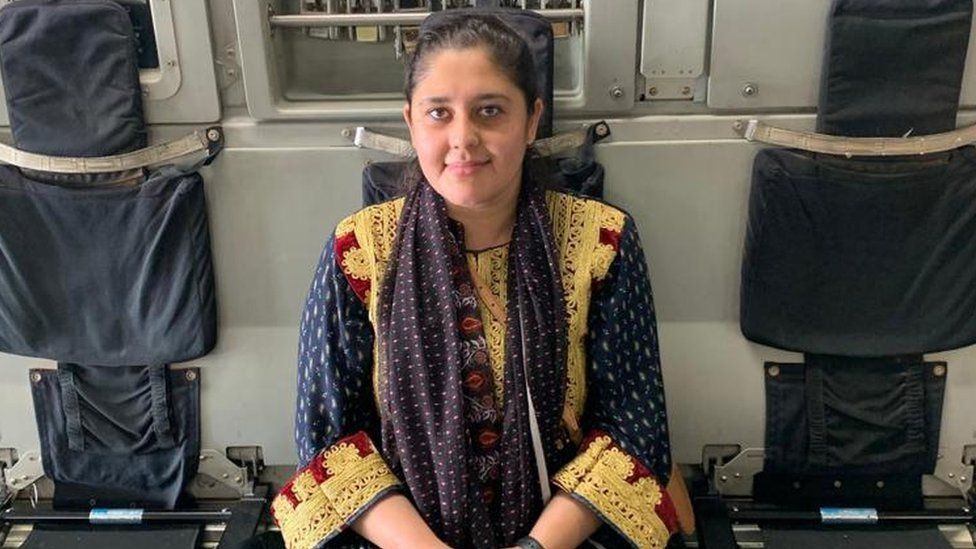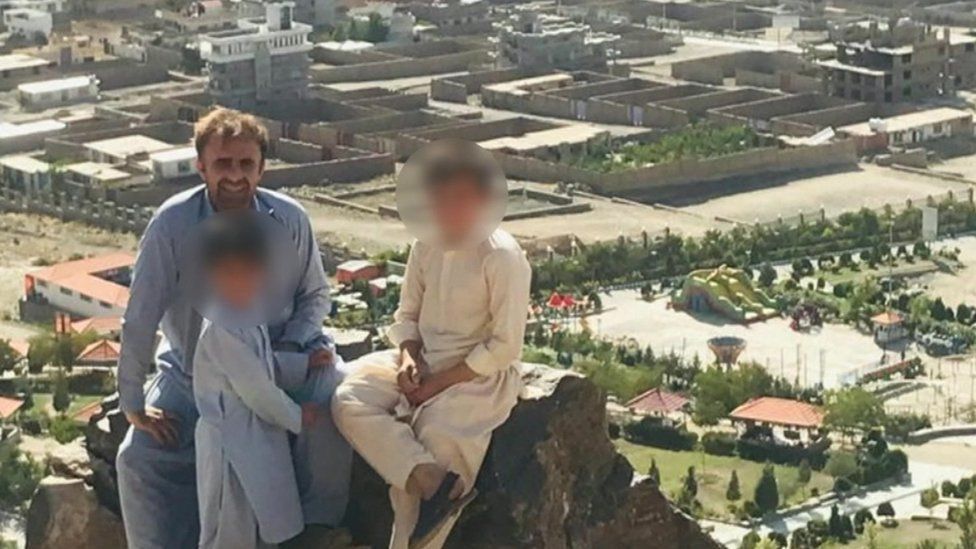
Kabul arrivals in the UK: 'We are the lucky ones'
UK troops are continuing to evacuate British nationals and eligible Afghans. Here are the stories of some of those who have made it to the UK.
'They are going to kill you'

Peymana Assad, 30, came to the UK when she was three years old. Now 30, she is a Labour councillor in Harrow, north-west London. She was visiting family in Kabul when the Taliban takeover began.
When Ms Assad received a call from the British embassy telling her she would be evacuated, she made straight for the airport. But with the roads blocked, she found herself running there on a traffic-jammed dual carriageway.
"From the back street, I saw hundreds and hundreds of people just running and walking towards the airport. People are getting out of the cars and running towards the airport," she said.
"All the shopkeepers have come out to watch the panic and the chaos and the fear of everyone running towards the airport. And one of them, as I was running, pointed at me and he said: 'You - if the Taliban catch you they are going to kill you. You better start running faster'."
Ms Assad found the UK meeting point - but was told she was too late. Officials had already been there and left.
"I just stood in the street - I had 3% battery and I looked at my battery and I thought if my phone dies and I'm standing here and the embassy aren't here, then what's going to happen? And the Taliban are literally advancing on to this area, I need to get somewhere safe - I need to go inside," she said.
A local family took her in and let her charge her phone - which she used to call the Foreign Office and her MP in London, Gareth Thomas.
"The family were very kind, they put me in their car and they took me to the safe location point again and when I arrived there again I saw the British military were there," said Ms Assad.
"And the moment I saw them and they saw me I just felt so much safer... and kind of sighed relief that I was safe at that point."
'Most of us began to cry'
Hassina Syed, an Afghan businesswoman and activist, said she felt great "relief" as her evacuation flight took off from Afghanistan.
She said she fled the country quickly because the situation was "very unpredictable". Ms Syed turned up at the airport with her Afghan passport and British driving licence - her husband and children are in the UK.
Asked about the atmosphere on the flight, she told BBC Two's Newsnight: "Everybody got very emotional, most of us began to cry a lot."
Ms Syed said UK troops gave passengers bottled water and food, and that it was "really touching" to see them help soothe crying children.
Women back in Afghanistan are "worrying" and "want to get out" she says, because they fear that the Taliban will "capture them".
She said that during the Taliban's news conference on Tuesday - their first since seizing control of Kabul - there appeared to be a "bit of changes [sic] that make us a little bit hopeful".
'We are the lucky ones'

Gharghasht Hidai, a British Afghan who worked for the US army, moved to the UK around six months ago, but was back in Afghanistan when the Taliban took over.
He was told he would be evacuated - but his wife isn't a dual national and was initially told to stay behind in Kabul. That decision was later changed, but she struggled to get into the airport compound in Kabul to meet him and their children, who are also UK nationals.
"The situation is very bad because we were literally inside the compound, we could see the fighting, the shooting. She was crying. When we met her again in that compound... a British officer, he was actually, he cried too," he said.
He described the plane journey to the UK as "chaotic". "The plane was completely full. One of my children was sitting on the floor," he said.
He and his family were quarantining in Manchester when they spoke to BBC News. "I feel good, we are safe. We will start back from scratch in the UK," he said.
"We are the lucky ones. We made it. There are lots of people who really need help."










